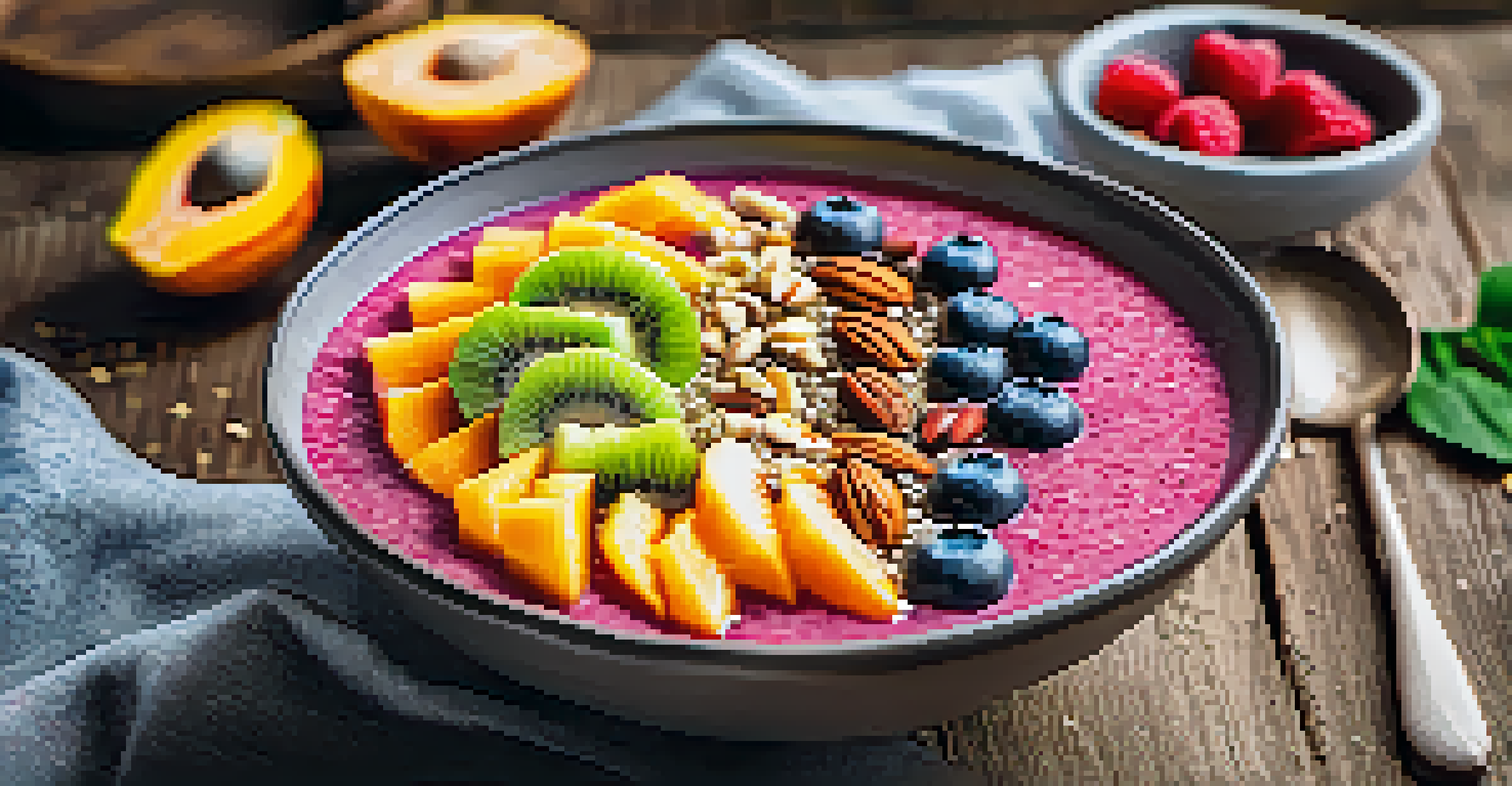10 Essential Nutrients for Children on a Vegetarian Diet

Understanding the Importance of Nutrients for Kids
Nutrients are like the building blocks for growing children, playing a crucial role in their development and overall health. A well-balanced diet provides the energy they need for play, learning, and growth. For children on a vegetarian diet, ensuring they get all essential nutrients is vital to support their active lifestyles.
Nutrition is the foundation of health, and the early years are critical for building a healthy future.
Parents often worry about whether their kids are getting enough vitamins and minerals on a vegetarian diet. While it can be challenging, with careful planning, a vegetarian diet can meet all their nutritional needs. Understanding which nutrients are essential helps parents make informed dietary choices.
By focusing on a variety of foods, such as fruits, vegetables, grains, and legumes, parents can ensure their children receive a balanced diet. This article will explore ten essential nutrients that are crucial for children on a vegetarian diet and how to include them in their meals.
Protein: The Building Block of Growth
Protein is essential for growth and development, especially in children. It supports the building of muscles, tissues, and the immune system. While meat is a common source of protein, vegetarian diets can also meet these needs through alternatives like beans, lentils, tofu, and dairy products.

For children who are vegetarian, it's important to include various protein sources in their diet. For instance, a delicious lentil soup or a chickpea salad can be both tasty and protein-rich. Incorporating nuts and seeds into snacks can also help boost their protein intake.
Nutrients are vital for kids' health
A balanced diet rich in essential nutrients supports children's growth, energy, and overall well-being.
Parents should aim for a mix of these protein sources to ensure their kids are getting complete proteins, which contain all the essential amino acids. With a little creativity in meal planning, protein can easily be included in their daily diet.
Iron: A Crucial Mineral for Energy
Iron is vital for producing hemoglobin, which carries oxygen in the blood. Children need adequate iron to maintain their energy levels and support their growing bodies. While red meat is a common source of iron, vegetarian options include beans, lentils, and fortified cereals.
You are what you eat, so don't be fast, cheap, easy, or fake.
One challenge with plant-based iron is that it's not as easily absorbed by the body as the iron from meat. To enhance absorption, pair iron-rich foods with vitamin C sources like oranges, strawberries, or bell peppers. A colorful stir-fry can be both appealing and nutritious!
Regularly including iron-rich foods in your child's meals can prevent iron deficiency anemia, which can lead to fatigue and developmental delays. Keeping an eye on their iron intake is especially important for active children.
Calcium: Building Strong Bones
Calcium is essential for developing strong bones and teeth in children. It plays a critical role in growth and helps prevent osteoporosis later in life. Dairy products are often the go-to source of calcium, but there are plenty of vegetarian alternatives available.
For lactose-intolerant kids or those who don't consume dairy, options like fortified plant-based milk, leafy greens, and almonds can provide ample calcium. A smoothie made with fortified almond milk and spinach can be a tasty way to sneak in those vital nutrients.
Vegetarian diets need careful planning
With thoughtful meal planning, parents can ensure their vegetarian kids receive all necessary vitamins and minerals.
Ensuring children get enough calcium during their growth spurts is crucial. By diversifying their diet with various calcium sources, parents can help support their children's bone health.
Vitamin B12: A Key for Energy and Brain Function
Vitamin B12 is essential for energy production and maintaining a healthy nervous system. It's primarily found in animal products, so children on a vegetarian diet need to be mindful of their intake. Fortified foods, such as cereals and plant-based milks, are great sources for those avoiding meat.
If kids are not consuming enough B12-rich foods, supplementation may be necessary. Discussing this with a healthcare provider can help determine the right approach for your child. Including a variety of fortified foods can make a big difference!
By ensuring adequate B12 intake, parents can help support their child’s cognitive function and energy levels, making it easier for them to thrive both in school and at play.
Omega-3 Fatty Acids: Supporting Brain Health
Omega-3 fatty acids are crucial for brain development and function. They help with cognitive abilities and can improve mood and behavior. While fish is a common source of omega-3s, vegetarians can obtain them from flaxseeds, chia seeds, and walnuts.
Incorporating these foods into a child’s diet can be as simple as adding ground flaxseed to smoothies or sprinkling chia seeds on yogurt. A simple trail mix with walnuts and dried fruit can also make for a nutritious snack.
Key nutrients for vegetarian kids
Focusing on protein, iron, calcium, and other vital nutrients can help maintain children's health and development on a vegetarian diet.
Given the importance of brain health during childhood, ensuring adequate omega-3 intake can support learning and development. With a bit of creativity, these healthy fats can easily be included in their meals.
Zinc: Supporting Growth and Immunity
Zinc plays a significant role in growth, immune function, and wound healing, making it an essential nutrient for children. While meat is a rich source of zinc, vegetarians can find it in beans, lentils, nuts, and whole grains. A hearty bean chili can be both filling and zinc-rich!
A common concern is that plant-based zinc is not as easily absorbed by the body. However, soaking or sprouting beans and grains can enhance zinc absorption. This simple step can make a big difference in nutrient availability.

Regularly including zinc-rich foods in children's diets can help bolster their immune systems and support their growth. Parents can be creative with meals to ensure their kids are getting enough of this vital mineral.
Vitamin D: Supporting Bone Health and Immunity
Vitamin D is essential for calcium absorption and overall bone health. It's also crucial for a robust immune system. While sunlight is a natural source of vitamin D, dietary sources include fortified foods and certain mushrooms. For kids, omega-3 enriched yogurt can be an excellent choice.
In regions with limited sunlight, especially during winter months, vitamin D supplementation may be necessary. It's always a good idea to consult with a healthcare provider to determine if your child needs a supplement. This proactive approach can ensure your child’s health is well-supported.
Incorporating vitamin D into your child's diet helps maintain strong bones and a healthy immune system. With a little planning, ensuring they get enough of this vitamin can be straightforward.